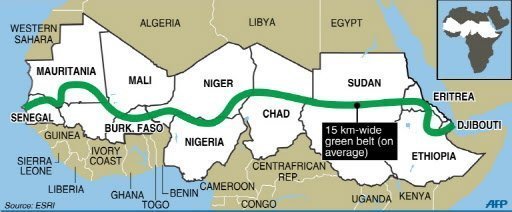How about making a profit while protecting the environment? Electric cars, passive houses, cleaner fuels, items from recyclable materials and a number of other solutions are continuing to gain more acceptance and success in playing their role of cutting down greenhouse gas (GHG) emissions. Although there are many companies out there whose business models indirectly save the environment from GHG emissions or offer sustainable solutions, there are others whose products and services are directly addressing an environmental issue. Recycling, renewable energy, reusing and even using innovative ideas to leverage the internet of things are examples of such products and services.
Some entrepreneurs recycle different materials for a high amount of money. Others use waste to produce energy for electricity. Some make mobile apps that help us save the environment directly or indirectly. Other more conventional ways are simply turning the solar heat or wind into energy. All these pro-environment ways protect the environment from a number of things; reduced GHG emissions earned by not expending a lot of energy in extracting, transporting and manufacturing new resources to produce the items. This also means a stop to continuous depletion of new natural resources. Diversion of wastes from landfills is a big merit considering less land will be lost to a pile of rubbish.
This post discusses two popular profitable solutions that help protect the environment. I hope they will inspire to venture on such ideas with your friends, family, company or business associates.
Recycling
At the top of the perk and most popular is a recycling business. Papers, plastics, metals and glasses are some of the most popular items being recycled. Electronic waste (printer cartridges, computers, etc.) recycling is also on the rise in a number of cities across the world. For the environment in Nigeria, there are enormous quantities of PET bottles that get used and thrown to the landfills, unfortunately denying the opportunity to use those sites for more productive purposes. Cities where recycling is promoted normally have a proper waste management system in place, where each type of waste, be it perishable, paper, plastic, glass or metal, are collected separately. This makes it a lot easier for waste haulers to collect each waste and pass it to the respective recycling facilities.
Manufacturers of plastic bottles in some developed countries often put the price value of returning a used bottle, as a part of a law referred to as Container Deposit Legislation. Depending on the size, they come in different values, with the most common price being 0.25 euros in Germany. Special places are kept in the supermarkets where people can return the bottle and get the price written on the bottle. This strategy motivates people to gather used PET bottles for a period of time and return them to get some cash back. This idea, therefore, shows that recycling is not only left for individuals or recycling companies to start something, but also PET bottles manufacturing company and supermarkets can start their own businesses of collecting used bottles, enabling and helping them save energy in producing bottles from virgin materials and costing cheaper as well.

Cleaner Energy
Our living ways are continuously increasing waste, meaning more disposal effort will have to be put in place. One good way of doing this is to transform it to energy. Converting waste to energy (popularly referred to with the acronym WtE or EfW (energy from waste)) is a good alternative for power generation. The simple convention is that the process tries to compress waste by turning it into heat or electricity, using thermal and non-thermal technologies. There are many ways this is possible; incineration, depolymerization, anaerobic digestion and a lot others. WtE is an emerging solution, gathering momentum even at small scales. An example of a big company working on WtE is Covanta, a company based in the United States with over 50 facilities across the globe, working with companies and communities to ensure no waste goes to waste.
A multitude of other ways, people and companies are utilizing to ensure that waste does not end up as rubbish, harming our environment and denying us other vital uses of other resources. What direct or indirect way are you using in protecting the environment at your business? I would love to hear more.
 Sadiq Abubakar Gulma steers the organizational mission of Green Habitat. He is a member of the Green Talents International Forum for High Potentials in Sustainable Development, a LEED accredited green building professional and has a master’s degree in Environmental Engineering. His research interest and work lie in investigating and improving the thermal conditions of urban built environments. Follow him on Twitter @TheCivineer
Sadiq Abubakar Gulma steers the organizational mission of Green Habitat. He is a member of the Green Talents International Forum for High Potentials in Sustainable Development, a LEED accredited green building professional and has a master’s degree in Environmental Engineering. His research interest and work lie in investigating and improving the thermal conditions of urban built environments. Follow him on Twitter @TheCivineer


Pingback: #GoGreen2017: Some bad environmental practices to leave behind in 2016 | Green Habitat Sustainable Development Initiative